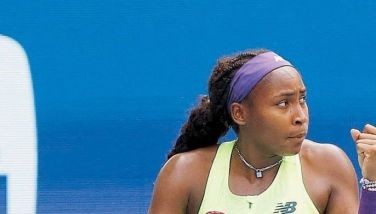Laotian sports through the years
VIENTIANE – Laos is the only land-locked country in Southeast Asia. The country’s economy is very much dependent on the performance of the US and European economies and, on Thailand’s by reason of, among others, proximity. Much of what Laotians use in their daily lives are imported from Thailand, including bottled water with the plastic container and cap brought in from Thailand. The water however is sourced locally.
The Laotian economy therefore faces serious concerns compared to Singapore, the Philippines, Malaysia and Indonesia which are predicted to grow despite the slowdown in Europe and the US. Even the Vientiane Times, one of two government-owned foreign language newspapers reports that “economists said that the global economy would play a significant role in driving the Laotian economy (managed by a Marxist-Leninist, single-party government so the government can achieve its development targets†for the benefit of its population of 6.5 million.
Like most developing countries, Laos’s financial problems have relegated sports somewhere near the bottom of its priority list. It is not surprising therefore that Vientiane, Laos hosted the Southeast Asian Games (SEA Games) only for the first time in 2009. The hosting of the Games by Laos assumed added significance as 2009 marked the 50th anniversary of the SEA Games which was known as the SEAP (Southeast Asian Peninsular) Games.
Laos founded the SEAP together with prime mover Thailand, Myanmar (then known as Burma), Malaysia (then Malaya), South Vietnam and Cambodia on October 22, 1958. Singapore joined shortly after the official launch of the SEAP Games. The SEAP Games officials offered Vientiane hosting rights to the 1965 Games but Laos declined because of financial problems.
The Philippines participated in the Vientiane Games and, for the first time, produced two “teamsâ€: one supported by the Philippine Sports Commission and the other by the Philippine Olympic Committee. It also marked the first time since the Philippines started participating in the biennial multi-sports event that the country failed to put its act together in a sport, cycling, to field entries who could have won a gold medal or two. The dispute merited world-wide attention and was certainly an embarrassing episode in Philippine sports.
The hosting by Vientiane of the 25th SEA Games provided the Laotian government the impetus to invest in infrastructure essential for becoming a bona-fide member of the international community. One of the beneficiaries of the grand athletic show the Laotians produced was the refurbished Wattay International Airport, conveniently only three kilometers or about 10 minutes from the Lao Plaza Hotel where the conference we attended was held. It was the second time for us to stay at Lao Plaza in the last six years.
The level of Laotian elite sports development can perhaps be gauged by the number of gold medals it has won since it joined the SEAP Games. The Laotians have won, as of the 2011 Games in Palembang, Indonesia, 53 gold medals since 1965, which are just 10 more than the 43 gold medals captured by Indonesia and 33 short of the 83 gold medals won by Vietnam in the Vientiane Games.
It might be interesting to note that as late as 1981 the participation in the SEA Games of Vietnam, Laos and one or two other ASEAN countries was subsidized by the SEA Games Federation. Vietnam has made, since then, tremendous inroads to the point of winning the overall championship with 158 gold medals in 2003 when Vietnamese cities Hanoi and Ho Chi Minh co-hosted the Games.
One could have a better perspective of the level of development of elite sports in Laos if one also considers the following gold medals (per the Southeast Asian Games Information) captured by the top four ASEAN countries since 1965 (for Thailand and Malaysia) and 1977 (for Indonesia and the Philippines); Thailand – 1887; Indonesia – 1602; Malaysia- 999 and the Philippines – 835.
A talk with ordinary Laotians indicate that football, boxing and muay Thai, are easily the most popular sports in the country. Incidentally, Thailand, Laos, Myanmar, Cambodia and China, share borders with Laos.
Traditional boxing as created by the west is gaining adherents in the country even as Muay Thai continues to be popular TV fare. Proof of the popularity of boxing is the association by Laotians with Manny Pacquiao of Filipinos they get to meet. The Vientiane Times featured a story which had been reported in Manila earlier about “(Juan Manuel) Marquez, (Timothy) Bradley eager to put Pacquiao behind them.â€
The days of the command economy are numbered simply because globalization and rapid development require a certain amount of political openness, as shown by China and other emerging economies.
The Laotians will have to formulate their own strategy of reform. Whatever they do for their country will have far-reaching effects on various aspects of Laotian life, including sports.
- Latest
- Trending
























